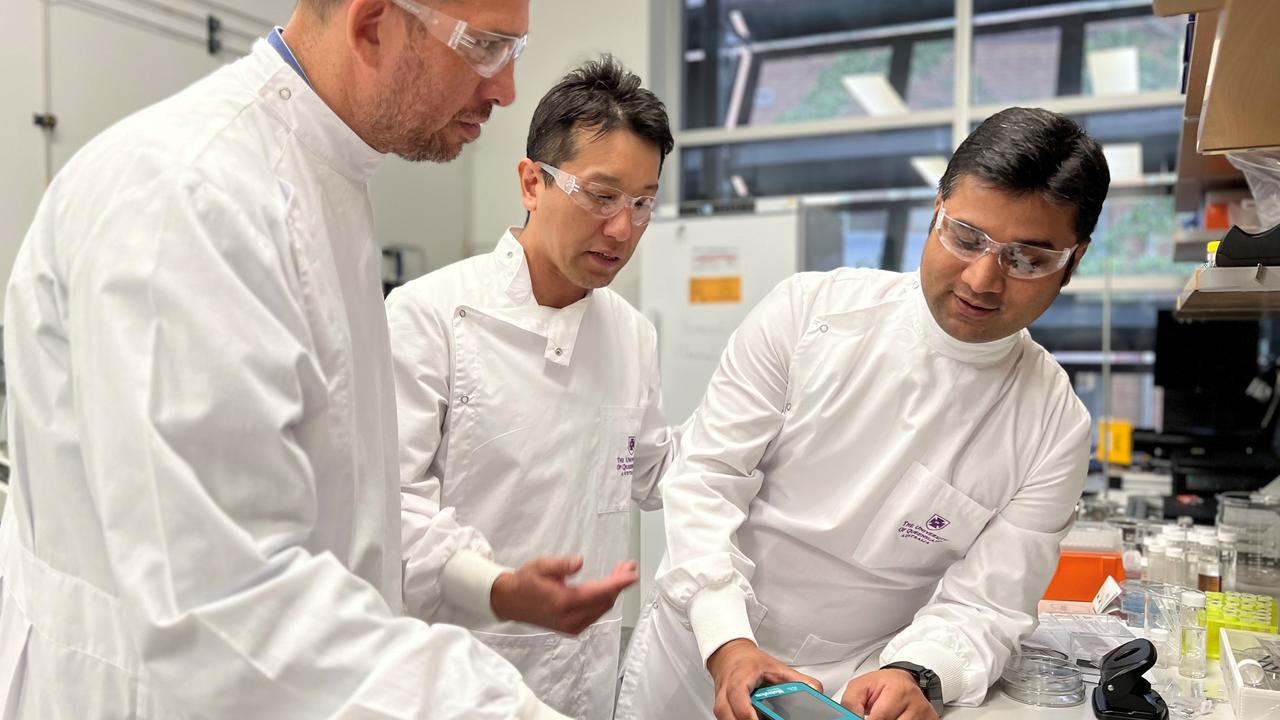Groundbreaking pregnancy test will revolutionise detection of neonatal complications
A breakthrough blood test that detects dangerous pregnancy complications as early as 11 weeks has been developed by Queensland scientists.

Lifestyle
Don't miss out on the headlines from Lifestyle. Followed categories will be added to My News.
A groundbreaking blood test that detects dangerous pregnancy complications as early as 11 weeks has been developed by Queensland scientists and is likely to save the state’s health system millions each year.
The University of Queensland’s rapid “nanoflower sensor” works by screening blood samples for cell biomarkers and can detect neonatal problems such as gestational diabetes, preterm birth risks and hypertension in the first trimester of pregnancy.
UQ Centre For Clinical Research professor Carlos Salomon Gallo said the sensor was able to detect health complications that typically were not picked up until later in pregnancy, which hindered early intervention.
“During our study we collected blood samples from 201 pregnant women at 11-13 weeks gestation and we detected possible complications, such as preterm birth, gestational diabetes and pre-eclampsia, which is high blood pressure during pregnancy,” he said.
The researchers’ next study would include a clinical trial involving at least 2000 women.
“These complications during pregnancy can have significant health risks, both in the short term and long term,” Prof Salomon Gallo said.
“Currently most pregnancy complications cannot be identified until the second or third trimester, which means it can sometimes be too late for effective intervention.
“However, with this technology, pregnant women will be able to seek medical intervention much earlier.
“We also found our biosensor has more than 90 per cent accuracy in identifying women at risk of developing pregnancy complications.”
Prof Salomon Gallo said the technology could save the healthcare system millions annually by reducing neonatal intensive care unit admissions, which cost about $5000-$10,000 per day, and prevent emergency interventions, including caesarean sections, which cost about $10,000-$20,000 each.
UQ’s Australian Institute for Bioengineering and Nanotechnology’s Mostafa Kamal Masud said the technology analysed extracellular vesicles, known as the body’s text messages, which carried critical signals between maternal and fetal cells during pregnancy.
“This technology has been developed using nanomaterials to detect low concentrations of biomarkers, which are parts of our cells that show health complications we might be carrying,” Dr Masud said.
“This is what makes our technology more sensitive than current testing methods, and why it can pick up potential pregnancy complications much earlier.”
Statistics from the Australian Institute of Health and Welfare show about 30,000 babies born in Australia each year have growth and developmental impairments due to pregnancy complications.
The research is published in Science Advances.






